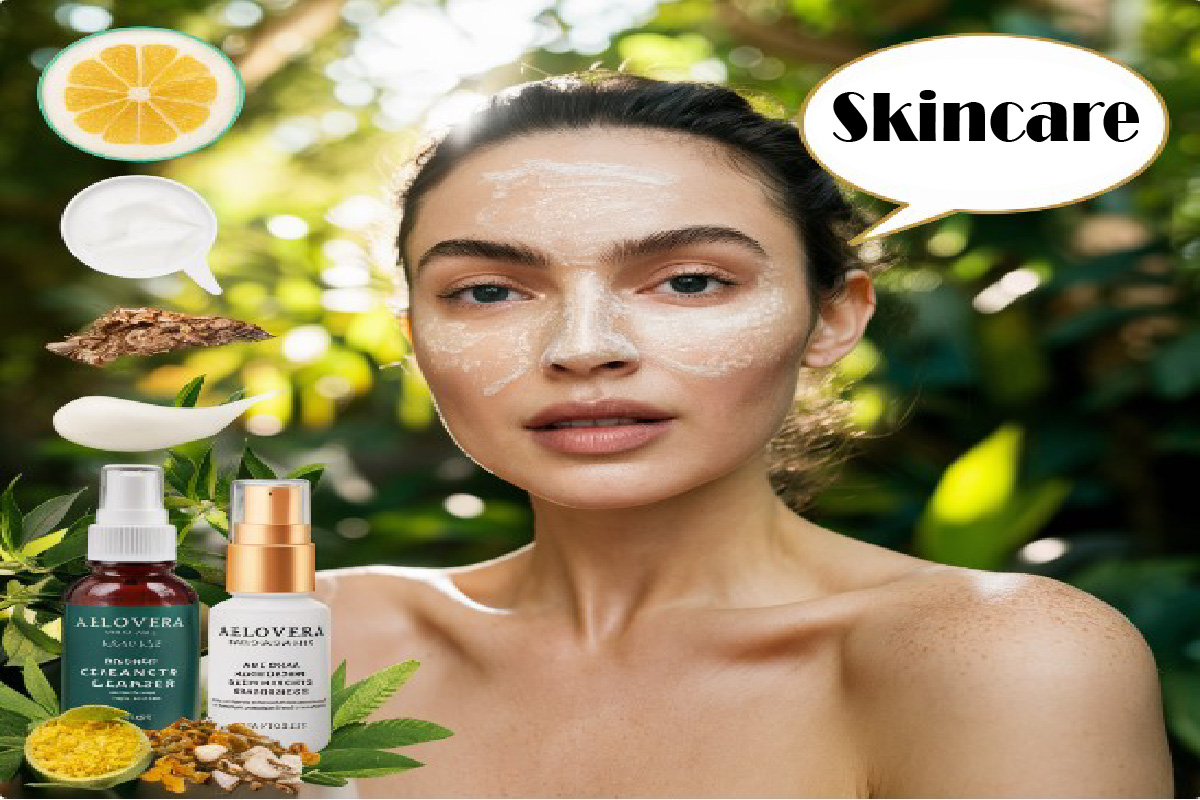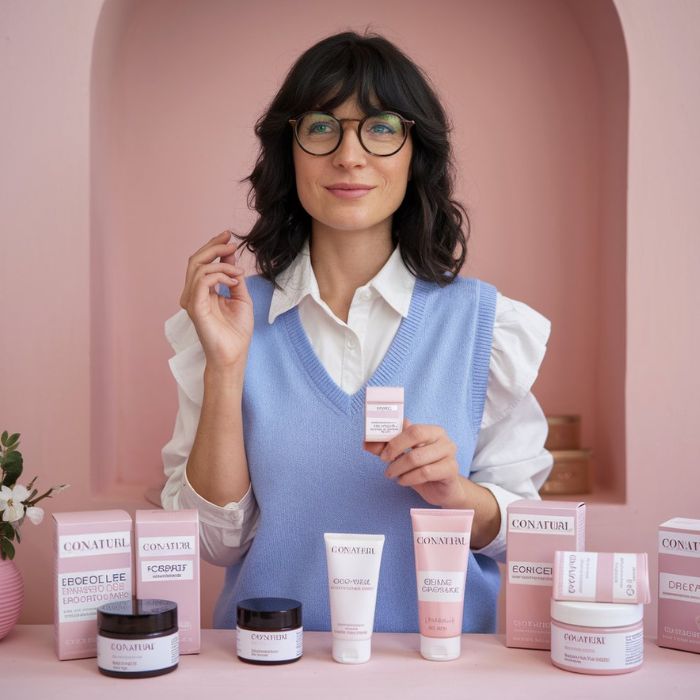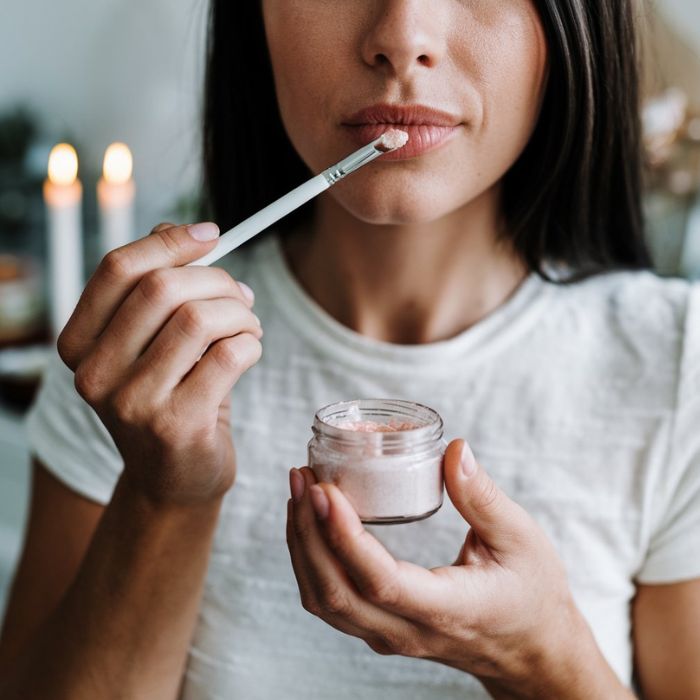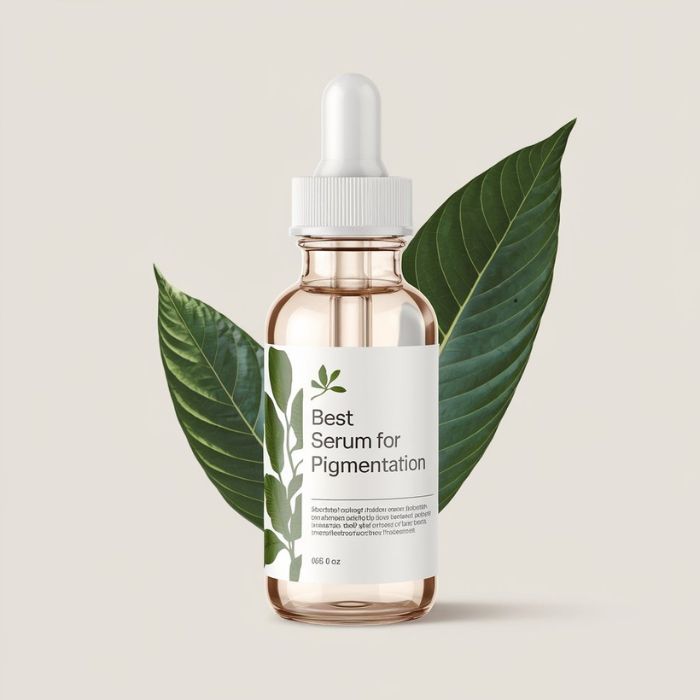Many people consider glowing skin as an indication of vitality and health. Achieving this radiant complexion requires a combination of proper skincare, a balanced diet, and healthy lifestyle choices. In this comprehensive guide, we will delve into the ultimate skincare routine, exploring each step in detail to help you achieve glowing skin. Additionally, we will discuss natural remedies and tips to enhance your skincare regimen.
Understanding Your Skin Type
Before diving into the skincare routine, it’s essential to understand your skin type. Knowing your skin type is crucial because it influences the products and methods you use to care for your skin effectively. Using the wrong products can lead to irritation, breakouts, or other skin issues, so identifying your skin type helps in selecting the appropriate products and tailoring your skincare routine to meet your specific needs. Generally, there are usually five primary types of skin:
1. Skin Normal
Features: Normal skin is balanced, neither excessively dry nor oily.
It typically has a smooth texture, fine pores, and few imperfections. Normal skin is not prone to severe sensitivity, acne, or excessive dryness. It maintains a good balance of moisture and oil, providing a healthy, vibrant appearance.
Skincare Tips:
- Use a gentle cleanser to maintain the skin’s natural balance.
- Apply a lightweight, hydrating moisturizer.
- Incorporate sunscreen with at least SPF 30 to protect against UV damage.
- Use a mild exfoliant once a week to remove dead skin cells and promote cell turnover.
- Consider using a serum with antioxidants, like vitamin C, to protect against environmental stressors.
2. Oily Skin
Characteristics:
Oily skin is characterized by a shiny appearance and enlarged pores. It tends to produce excess sebum, leading to a greasy texture, especially in the T-zone (forehead, nose, and chin). This skin type is prone to acne, blackheads, and other blemishes due to clogged pores.
Skincare Tips:
- To get rid of extra oil without stripping the skin, use a foamy or gel-based cleanser.
- Apply a toner with salicylic acid to help control oil production and prevent breakouts.
- Choose oil-free, non-comedogenic moisturizers to keep the skin hydrated without clogging pores.
- Incorporate clay masks once or twice a week to absorb excess oil and cleanse pores.
- Use oil-control primers and matte-finish products if wearing makeup.
3۔ Dry Skin
Characteristics:
Dry skin often feels tight, rough, and flaky. It lacks moisture and natural oils, which can result in a dull complexion and less elasticity. Dry skin may also be prone to fine lines and wrinkles due to the lack of hydration.
Skincare Tips:
- Use a creamy, hydrating cleanser to avoid stripping natural oils.
- Apply a rich, nourishing moisturizer immediately after cleansing to lock in moisture.
- Incorporate hyaluronic acid serums to attract and retain moisture in the skin.
- Use a gentle exfoliant to remove flaky skin, but limit exfoliation to prevent irritation.
- Consider using a humidifier in your home to add moisture to the air, especially in dry climates.
4۔ Combination Skin
Characteristics:
Combination skin has both oily and dry areas, typically oily in the T-zone and dry on the cheeks and other areas. It can be challenging to address both skin types simultaneously, but a balanced approach can help manage the differing needs.
Skincare Tips:
- Use a gentle, balanced cleanser to address both oily and dry areas.
- Apply a lightweight moisturizer in the T-zone and a richer moisturizer on the dry areas.
- Use targeted treatments: mattifying products for the T-zone and hydrating products for the dry areas.
- Apply separate masks to different parts of your face or use masks intended for combination skin.
- Use a toner that can balance the pH of the skin without being overly harsh.
5۔ Sensitive Skin
Characteristics:
Sensitive skin is easily irritated and prone to redness, itching, and reactions to various products or environmental factors. It can be dry, oily, or a combination, but the common factor is a heightened sensitivity.
Skincare Tips:
- Use fragrance-free, hypoallergenic products designed for sensitive skin.
- Avoid harsh ingredients like alcohol, sulfates, and strong acids.
- Incorporate soothing ingredients like aloe vera, chamomile, and colloidal oatmeal.
- Patch-test new products on a small area of skin before applying them to your face.
- Use lukewarm water when cleansing to avoid irritation from hot water.
Identifying Your Skin Type
There is a quick test you can do at home to determine your skin type:
1. Cleanse your face: Use a mild cleanser and pat dry your skin.
2. Bare your skin: Don’t use any makeup and give it an hour or so.
3. Examine your skin: Look at your face in a well-lit mirror one hour later. Take note of your skin’s preferences:
Skin texture and appearance
- You probably have normal skin if it looks balanced and feels comfortable.
- If it appears shiny and feels greasy, especially in the T-zone, you likely have oily skin.
- If it feels tight, rough, or flaky, you likely have dry skin.
- If you notice both oily and dry areas, you likely have combination skin.
- If it appears red, irritated, or reacts easily to different factors, you likely have sensitive skin.
By understanding your skin type, you can select the appropriate products and create a tailored skincare routine that effectively addresses your skin’s specific needs, leading to healthier and more radiant skin.
Morning Skincare Routine
1۔ Cleansing
The first step in any effective skin care routine is cleaning. To avoid blocked pores, breakouts, and dullness, this crucial procedure clears the skin of debris, oil, makeup, and environmental toxins. Your skin will be cleansed without losing its natural moisture content if you use the correct cleanser for your skin type.
-
For Normal Skin
Characteristics: Normal skin is well-balanced, neither too oily nor too dry.
Recommendation: Use a mild, hydrating cleanser that maintains the skin’s natural balance. Look for ingredients like glycerin and hyaluronic acid, which help retain moisture while cleansing away impurities.
-
For Oily Skin
Characteristics: Oily skin is characterized by excess sebum production, leading to a shiny appearance and frequent breakouts.
Recommendation: Opt for a foaming or gel-based cleanser designed to control excess oil and prevent acne. Ingredients like salicylic acid or benzoyl peroxide can help reduce oil and keep pores clear.
-
For Dry Skin
Characteristics: Dry skin often feels tight, rough, and may have visible flaking.
Recommendation: Choose a creamy, hydrating cleanser that nourishes and moisturizes the skin while cleansing. Ingredients like ceramides, fatty acids, and natural oils (e.g., jojoba or argan oil) can help replenish moisture and soothe dry skin.
-
For Combination Skin
Characteristics: Combination skin features both oily and dry areas, typically with an oily T-zone (forehead, nose, and chin) and drier cheeks.
Recommendation: Use a balanced cleanser that can address both oily and dry areas without causing irritation. Look for gentle formulas with ingredients like tea tree oil for the oily parts and hydrating agents like aloe vera for the dry areas.
-
For Sensitive Skin
Characteristics: Sensitive skin is prone to redness, irritation, and reactions to various products or environmental factors.
Recommendation: Select a fragrance-free, hypoallergenic cleanser to minimize the risk of irritation. Ingredients like chamomile, calendula, and oat extract are soothing and calming for sensitive skin. It’s also beneficial to choose a non-foaming, creamy cleanser to avoid stripping the skin’s natural protective barrier.
Additional Cleansing Tips
1. Double cleansing:
If you use makeup or are outside a lot, think about double cleansing. This entails dissolving sunscreen and makeup using an oil-based cleanser first, then using a water-based cleanser to get rid of any leftover pollutants.
- Lukewarm Water: Always use lukewarm water to rinse your face. Hot water can strip the skin of its natural oils, while cold water may not effectively remove all impurities.
- Gentle Techniques: Be gentle while cleansing. Use your fingertips to apply the cleanser in a circular motion, avoiding harsh scrubbing, which can irritate the skin.
- Consistent Routine: Cleanse your face twice daily: in the morning to remove oils produced overnight and in the evening to cleanse away the day’s impurities.
- Pat Dry: After cleansing, gently pat your skin dry with a soft towel instead of rubbing it, which can cause irritation and micro-tears.
By selecting the appropriate cleanser for your skin type and following these tips, you can ensure that your skin remains clean, healthy, and ready for the next steps in your skincare routine. Cleansing sets the stage for better absorption of subsequent products, making it a pivotal step in achieving glowing, radiant skin.
2. Toning
Toners help to balance the skin’s pH levels, remove any leftover impurities, and prepare the skin for the next steps. Choose an alcohol-free toner to avoid drying out your skin. Look for toners with soothing ingredients like witch hazel, rose water, or chamomile.
3. Serum Application
Serums are concentrated formulas that target specific skin concerns, such as fine lines, dark spots, and dehydration. Some popular serum ingredients include:
Hyaluronic Acid: For hydration and plumping the skin.
Vitamin C: For brightening and protecting against environmental damage.
Niacinamide: For reducing redness and improving skin texture.
Retinol: For anti-aging and promoting cell turnover (best used in the evening).
4. Moisturizing
The skin barrier is hydrated and shielded by moisturizers. Moisture is necessary for even oily skin to avoid excessive oil production. Select a moisturizer based on the type of skin you have:
Normal Skin: Apply a thin layer of moisturising cream.
Oily Skin: Use a mattifying, oil-free moisturizer.
Dry skin: Use a thick, hydrating moisturizer.
Combination Skin: Apply a heavier solution to dry regions and a lighter moisturizer to the T-zone.
Sensitive Skin: Use a light moisturizer without any fragrance.
5. Sunscreen
Sunscreen is a non-negotiable step in your morning routine. It protects your skin from harmful UV rays, preventing premature aging, sunburn, and skin cancer. Use a broad-spectrum sunscreen with at least SPF 30 and reapply throughout the day if you’re spending time outdoors.
Evening Skincare Routine
1. Makeup Removal
If you wear makeup, it’s crucial to remove it thoroughly before cleansing. Use a makeup remover or micellar water to dissolve makeup and impurities.
2. Cleansing
Follow up with a gentle cleanser to remove any remaining dirt and oil. Double cleansing, which involves using an oil-based cleanser followed by a water-based cleanser, is an effective method for ensuring a thorough cleanse.
3. Exfoliating
Exfoliation removes dead skin cells, promoting a smoother and brighter complexion. However, over-exfoliating can damage the skin barrier. Aim to exfoliate 2-3 times a week using a chemical exfoliate (like AHAs or BHAs) or a gentle scrub.
4. Toning
Reapply your toner to balance the skin’s pH and prepare it for the subsequent steps.
5. Treatment Serums
Use treatment serums at night to address specific skin concerns. Retinol is a popular choice for nighttime use due to its powerful anti-ageing properties. Start with a low concentration and gradually increase to avoid irritation.
6. Eye Cream
The skin around the eyes is delicate and prone to fine lines and dark circles. Use a hydrating eye cream with ingredients like hyaluronic acid, peptides, or caffeine to reduce puffiness and brighten the under-eye area.
7. Moisturising
Apply a richer moisturizer or a sleeping mask to lock in moisture and repair the skin overnight.
Weekly Skincare Treatments
1. Face Masks
Face masks provide a boost of nutrients and hydration. Choose masks that address your specific skin concerns, such as clay masks for oily skin, hydrating masks for dry skin, or soothing masks for sensitive skin. Use face masks 1-2 times a week for optimal results.
2. Facial Oils
Facial oils can provide extra hydration and nourishment, especially for dry or mature skin. Apply a few drops after your moisturizer or mix it into your moisturizer for an added boost.
3. Professional Treatments
Consider professional treatments like facials, chemical peels, or microdermabrasion for deeper exfoliation and skin rejuvenation. Consult with a dermatologist or licensed anaesthetic to determine the best treatments for your skin.
Lifestyle Tips for Glowing Skin
Achieving and maintaining glowing skin involves more than just a good skincare routine. Your lifestyle choices play a significant role in the health and appearance of your skin. Here are some detailed lifestyle tips to help you achieve that radiant glow.
-
Stay Hydrated
Importance: Hydration is essential for preserving the suppleness, hydration, and general health of the skin.
Tips :
– Try to consume 8 glasses (or roughly 2 litres) of water a day minimum.
– Include foods high in water content in your diet, such as oranges, cucumbers, and watermelon.
– Track your daily consumption of water by using a reusable bottle.
– For a pleasant change, try adding a piece of lemon, lime, or mint to plain water if it’s too boring.
-
Eat a Balanced Diet
Importance: A diet high in nutrients gives your skin the building blocks it needs to remain vibrant and healthy.
Recommendations: “Fruits and Vegetables“: Consume a range of vibrant fruits and veggies. Rich in antioxidants that protect skin, berries, citrus fruits, and leafy greens are especially high in them.
Lean Proteins: Include lean proteins to help skin repair and collagen formation, such as fish, tofu, chicken, and lentils.
Healthy Fats: Consume foods high in healthy fats, such as olive oil, avocados, nuts, and seeds, as these foods support the skin’s moisture barrier.
Reduce Processed Food Intake: Cut back on sugar-filled, processed meals and beverages as these can aggravate acne and other skin conditions.
-
Get Enough Sleep
Importance: Sleep is crucial for radiant skin because it is when your body heals and regenerates.
Recommendations:
– Aim for 7 to 9 hours of good sleep per night.
– Even on weekends, stick to a regular sleep routine by going to bed and waking up at the same times each day.
– Establish a calming evening ritual to decompress, such reading a book, having a warm bath, or engaging in mindfulness exercises.
– Make sure your bedroom is quiet, dark, and cold so that you may sleep in a comfortable atmosphere.
-
Manage Stress
Importance: Prolonged stress can lead to skin conditions like eczema, acne, and early ageing.
Recommendations :
– Engage in awareness and relaxation exercises such progressive muscle relaxation, deep breathing, and meditation.
Incorporate stress-relieving physical activities such as yoga, tai chi, or basic stretching exercises.
– Schedule time for interests and pastimes that relax and make you happy.
– Keep a healthy work-life balance and don’t be afraid to ask friends, family, or experts for help when you need it.
-
Exercise Regularly
Importance: Getting regular exercise improves circulation, which helps your skin receive oxygen and nutrients and looks healthier overall.
Recommendations:
– Try to get in at least 30 minutes of moderate exercise most days of the week, including running, cycling, or brisk walking.
– Incorporate strength training activities to enhance general health and muscular growth.
– Incorporate skin-friendly workouts like yoga, which can aid with posture and stress reduction.
– Always wash your face to get rid of perspiration and other pollutants that might clog pores after an exercise.
-
Protect Your Skin from the Sun
Importance: Prolonged sun exposure can cause dark patches, early ageing, and a higher chance of developing skin cancer.
Advice:
– Use a broad-spectrum sunscreen with a minimum SPF of 30 every day, especially on overcast ones.
– Reapply sunscreen after swimming or perspiring, and every two hours when you’re outside.
– When spending a lot of time outside, dress in protective gear such long sleeves, sunglasses, and wide-brimmed hats.
– Look for shade whenever you can, especially between the hours of 10 a.m. and 4 p.m.
-
Avoid Smoking and Limit Alcohol
Importance: The health and appearance of your skin might be negatively impacted by smoking and binge drinking.
TIPS:
– Steer clear of smoke to avoid smoking-related skin damage, early ageing, and elasticity loss.
– Avoid alcohol consumption.
– Choose drinks that are good for your skin, such as infused water or herbal teas, to stay hydrated without consuming alcohol.
You may greatly improve the health and shine of your skin by adopting these lifestyle habits into your everyday routine. Recall that healthy skin is a mirror of your entire wellbeing, so maintaining your physical and mental well-being will inevitably result in more vivid skin.
Remedies for Skincare
-
Aloe vera
Aloe vera is a great treatment for skin that is irritated or sunburnt because of its moisturising and soothing qualities. To provide your skin with immediate relief and hydration, apply pure aloe vera gel.
-
Honey
Honey has antimicrobial qualities and is a natural humectant. It can be applied to the face as a mask to help heal and moisturise the skin. After putting on raw honey and leaving it on your face for 15 to 20 minutes, wash it off with warm water.
-
Coconut Oil
For dry skin in particular, coconut oil works wonders as a natural moisturiser. Apply it to dry parts of your skin or use it as a face oil to seal in moisture and relieve irritation.
-
Green Tea
Green tea is rich in antioxidants and can help reduce inflammation. Use cooled green tea bags as a compress for puffy eyes or mix green tea extract into your DIY face masks.
-
Oatmeal
Oatmeal has calming and anti-inflammatory properties, making it ideal for sensitive or irritated skin. Mix oatmeal with water or yogurt to create a soothing face mask.
-
Cucumber
Cucumber has hydrating and cooling effects. Place cucumber slices on your eyes to reduce puffiness or blend cucumber into a paste and apply it to your face for a refreshing mask.
Conclusion
Achieving glowing skin involves a combination of a well-rounded skincare routine, healthy lifestyle choices, and the use of natural remedies. By understanding your skin type and following the steps outlined in this guide, you can create a personalized skincare regimen that addresses your unique needs. Remember, consistency is key to seeing long-term results. With patience and dedication, you can achieve and maintain the radiant, glowing skin you desire.










